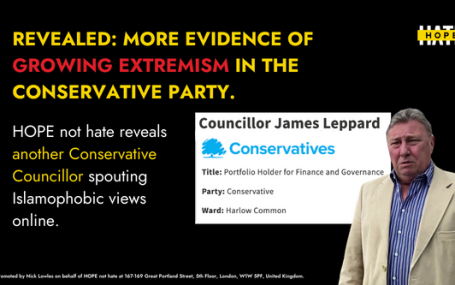HOPE not hate uses cookies to collect information and give you a more personalised experience on our site. You can find more information in our privacy policy. To agree to this, please click accept.
Click here to see a full list of far-right candidates standing in June’s general election
UKIP is fielding just 377 candidates, a 41% decrease from 624 in the 2015 General Election. This is, in part at least, because the Eurosceptic party is declining to contest many seats defended by stridently pro-Brexit MPs.
The dramatic decrease in candidates is also indicative of the floundering party’s current struggles. Despite expectations, UKIP has declined to field candidates in several potential target seats, such as Labour constituencies Batley and Spen and Stoke North, a constituency with the highest Brexit vote of any Labour area.
UKIP has haemorrhaged both members and donors since the EU Referendum, and the party is still reeling from disastrous local election results, in which the party lost all 145 county council seats, and won just one. According to BBC polling, UKIP’s vote has fallen to 5%, down from 22% in 2013.
In the wake of Brexit and the apparent adoption of many key UKIP policies by Theresa May’s Conservatives, the party is devoid of much of its former appeal. Resorting to a radically anti-Muslim platform, UKIP will channel its limited resources into divisive campaigning into a few key target seats.
Areas of focus will include:
Unsurprisingly the BNP have managed to stand just ten candidates, more evidence as if any were needed, of their complete electoral irrelevance. Their beleaguered leader Adam Walker is to stand in Bishop Auckland in the North East but has no chance of winning.
The nationalist English Democrats have mustered seven candidates, four of whom are standing in Yorkshire. Their chairman Robin Tilbrook is standing in Clacton against UKIP NEC member Paul Oakley.
Click here to see a full list of far-right candidates standing in June’s general election

Cllr James Leppard expressed Islamophobic sentiments and endorsed abuse of Sadiq Khan HOPE not hate can reveal further evidence of the growing problem of extremism…